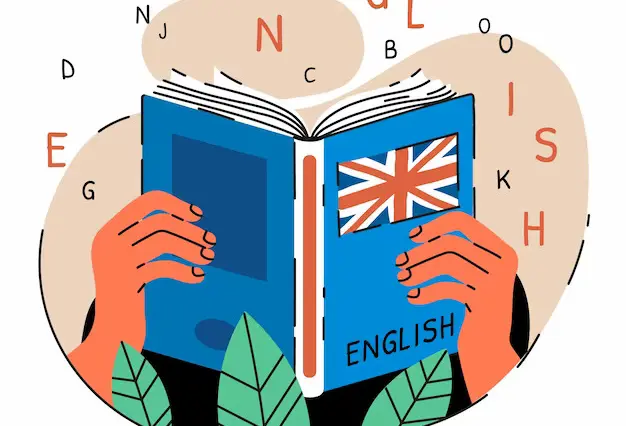Words are the building blocks of communication, shaping our thoughts, emotions, and interactions with the world. Whether spoken or written, words have the power to inspire, educate, persuade, and connect us with others. Developing strong word skills not only enhances our ability to express ourselves effectively but also enriches our understanding of the world around us.
In this guide, explore various strategies and techniques to improve your word skills. From expanding your vocabulary to mastering grammar and syntax, we’ll cover everything you need to know to become a word wizard.
So, let’s dive in and unlock the secrets!
Expanding Your Vocabulary:
One of the most effective ways to improve your word skills is by expanding your vocabulary. A rich and diverse vocabulary not only makes your communication more precise and engaging but also enables you to express yourself more articulate. A robust vocabulary serves as the cornerstone of effective communication, empowering you to articulate thoughts and ideas with clarity and sophistication.
Here are some strategies to help you enhance your vocabulary:
Read Widely:
Reading is one of the most powerful ways to expose yourself to new words and concepts. Make it a habit to read a variety of materials including books, articles, essays, and poetry. Pay attention to unfamiliar words and take the time to look up their meanings. Learn New Vocabulary on Instagram can provide daily doses of new words and their definitions, helping you broaden your linguistic horizons.
Keep a Vocabulary Journal:
Create a dedicated journal or digital document to record new words you encounter. Include the words, its definition, and a sentence or two demonstrating how it’s used in context. Maintain a vocabulary journal where you record new words along with sentences demonstrating their usage. Review your journal regularly to reinforce your learning and track your progress.
Use Flashcards:
Flashcards are a classic tool for learning and retaining new vocabulary. Create flashcards with a word on one side and its definition on the other. Review them regularly, testing yourself on both recognition and recall.
Utilize Technology:
Leverage technology to augment your vocabulary-building efforts. Vocabulary apps, flashcard programs, and online dictionaries offer interactive ways to learn and review words. Some apps even employ spaced repetition algorithms to optimize long-term retention.
Play Word Games:
Word games like Scrabble, Boggle, and crossword puzzles are not only fun but also effective for building vocabulary. Challenge yourself to play regularly and strive to incorporate new words into your gameplay.
Mastering Grammar and Syntax:
In addition to expanding your vocabulary, mastering grammar and syntax is essential for effective communication. Grammar provides the structural framework for language, while syntax governs how words are arranged to form meaningful sentences.
Here are some tips to help you hone your grammar and syntax skills:
Study Grammar Rules:
Take the time to study grammar rules and conventions, focusing on key areas such as sentence structure, verb tense, subject-verb agreement, and punctuation. Online resources, grammar books, and language-learning apps can be valuable tools for learning and practicing grammar.
Analyse Sentence Structure:
Pay attention to the structure of sentences in the materials you read. Identify different sentence types (e.g., simple, compound, complex) and analyze how they are constructed.
Seek Feedback:
Share your writing content with others and solicit feedback on your grammar and syntax. Whether it’s from a teacher, mentor, or peer, constructive feedback can help you identify areas for improvement and refine your language skills.
Edit and Revise:
Make editing and revising an integral part of your writing process. Review your work carefully for grammatical errors, awkward phrasing, and inconsistencies. Pay attention to details such as punctuation, capitalization, and word choice to ensure clarity and coherence in your writing.
Enhancing Word Usage and Expression:
Effective communication transcends mere lexical proficiency; it entails employing words with precision, nuance, and creativity. Here are some strategies to help you enhance your word usage and expression:
Explore Synonyms and Antonyms:
Broaden your linguistic palette by exploring synonyms (words with similar meanings) and antonyms (words with opposite meanings). Understanding the distinction in meaning can help you choose the most precise and impactful words for your writing and speech.
Harness Figurative Language:
Experiment with figurative language techniques such as similes, metaphors, and analogies to add depth and vividness to your expression. Explore how different literary devices can evoke imagery, emotions, and themes in your writing.
Cultivate Voice and Style:
Develop your unique voice and writing style by experimenting with different tones, rhythms, and rhetorical devices. Whether you prefer a formal, academic style or a more conversational, creative approach, find what resonates with you and practice expressing yourself authentically.
Practice Precision and Clarity:
Strive for precision and clarity in your choice of words and expressions. Avoid vague or ambiguous language, opting instead for concise, concrete terms that convey your intended meaning unambiguously.
Read Aloud:
Read your writing composition aloud can help you identify awkward phrasing, repetitive patterns, and areas where your expression could be improved. Pay attention to rhythm, intonation, and emphasis, and make revisions as needed to enhance clarity and flow.
Frequently Asked Questions:
How can I remember new words more effectively?
Mnemonic devices, such as creating associations or visual images for new words, can aid in memory retention. Additionally, using new words in context through writing or conversation can reinforce your memory of them.
What’s the best way to improve your grammar skills?
Consistent practice is key to improving grammar skills. Engage in activities such as grammar exercises, writing practice, and sentence analysis to reinforce grammar rules and conventions.
How do I know if I’m using a word correctly?
Consulting reputable dictionaries and style guides can help ensure accurate word usage. Additionally, paying attention to how words are used in context in authentic texts can provide valuable guidance.
How can I make my writing more engaging?
Incorporating vivid imagination and varied sentence structures can enhance the engagement of your writing. Experiment with different rhetorical devices and stylistic techniques to captivate your audience.
Is it ever too late to improve my word skills?
It’s never too late to enhance your word skills! Language learning is a lifelong journey, and consistent effort and practice can lead to significant improvement at any age.
Conclusion:
In the pursuit of super word skills, persistence and curiosity are your greatest allies. By nurturing your vocabulary, mastering grammar and syntax, and refining your word usage and expression, you can become a more confident and effective communicator. Embrace the joy of discovery, the thrill of experimentation, and the satisfaction of mastery as you navigate the infinite possibilities of language. Remember, the world is your oyster, and words are the pearls that adorn your communication.
So, let your linguistic journey begin, and may your words illuminate the world with brilliance and beauty!
Also Read 5 Daily Routines to Improve Your English

Ashley Wilson is a blogger who loves to write about various topics including technology, business, digital marketing, food, health, fashion, travel, personal development & more.


